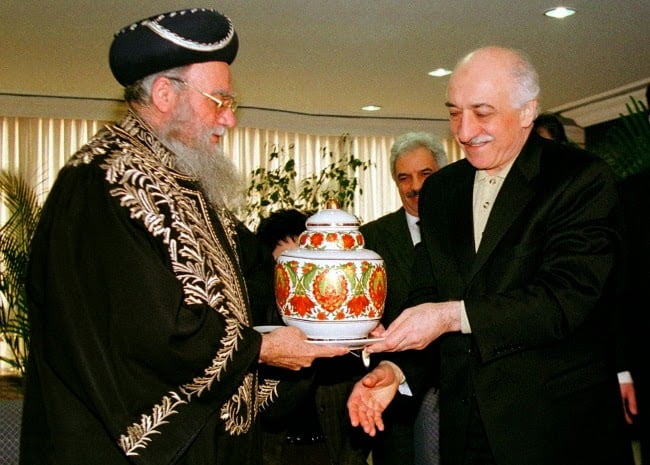2017 model bigotry: Defamation of Jews and Gulen movement in Turkey

Date posted: August 19, 2017
Cansu Camlibel
Since last week’s horrific scenes of white supremacists and Neo-Nazis in Charlottesville, Virginia, which resulted in deadly violence, American friends familiar with polarization in Turkish society in recent years keep telling me now they understand our despair. I agree with them to a certain extent in terms of drawing similarities between worrying political tendencies of the masses in Turkey and the U.S., but only to a certain extent. History unfolded differently in Turkey. Modern Turkey does not have a memory of a civil war, which enforced the state to equally treat different groups of citizens. Yet the Republic carried all societal complexities of the Ottoman Empire to this day, without accomplishing the truly equal treatment of different ethnic and religious groups.
Indeed, the moral flaws in terms of the treatment of religious minorities in Turkey were strikingly outlined in the U.S. State Department’s annual religious freedoms report, published a few days ago. One might reasonably argue that the U.S. is hardly in a position to dictate moral obligations to other nations when it is struggling to clean its own backyard. But I still find these reports useful in coming to terms with our bitter realities. After all, we Turks have a tradition of burying our heads in the sand rather than confronting the ugly truth ourselves.
We might not have well-structured Neo-Nazi groups in Turkey, but Jews continue to express concern about anti-Semitism and increased threats of violence throughout the country. Remember how the first Jewish wedding held in 41 years at the newly renovated Grand Synagogue in Edirne triggered anti-Semitic attacks on social media. Comments such as “Kill the Jews” and “It’s such a pity that Hitler didn’t finish the job” were shamelessly shared on Periscope while the tiny Turkish Jewish community was broadcasting live from the wedding.
According to the report penned by U.S. diplomats, threats of violence against the Jewish community in Turkey increased after the July 15, 2016 coup attempt. Alevis, Protestants and Catholics have also felt their share of similar bigotry, which has sometimes resulted in vandalism.
Let me just remind you of some examples of the anti-Semitic discourse and hate speech in the Turkish media from the State Department’s report.
“In August a columnist in Yeni Şafak associated the July 15 coup plotters with Jews by claiming the mother of Fetullah Gülen had a Jewish name.”
“In December a columnist in Sabah said Gülen was a very clever man who can smell money and power instantly because he is a Jew. He went on to link Jews to brothels and called them ‘liars expert at disguise.’”
“In December Forestry Minister Veysel Eroğlu said that Fethullah Gülen will end up dying in the U.S. and be buried in a Jewish cemetery.”
It is one thing for a columnist to throw out conspiracy theories, but when a government minister voices similar rhetoric it raises the question of whether those ideas really are as marginal as we think. After all, in the case of Charlottesville, President Trump’s refusal to unequivocally condemn the actions of white supremacists was more alarming than the images of white men in polo t-shirts carrying torches celebrating Nazi ideology.
Similarly, more alarming than the thousands of Turkish Muslims performing in a morning prayer outside the Hagia Sophia are the rumors that prominent names inside the Turkish government are also pushing for the reconversion of the museum into a mosque. Two months ago, former Directorate of Religious Affairs (Diyanet) head Mehmet Görmez’s move to take part in a special broadcast at the Hagia Sophia on state broadcaster TRT, marking the Laylat al-Qadr, raised further question marks.
The Turkish state should not need foreigners’ caution to acknowledge Hagia Sophia’s historical significance as a symbol of peaceful coexistence and meaningful dialogue between religions. At a moment when the monsters of the Islamic State of Iraq and the Levant (ISIL) are destroying ancient mosques and churches just across our southern border, Turkey must pay utmost attention to not lose its soft power of religious tolerance.
Original title of this article is “2017 model bigotry: Turkey not Charlottesville“
Source: Hurriyet Daily News , August 19, 2017
Tags: Defamation of Hizmet | Turkey |
























